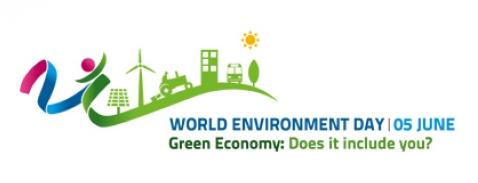
World Environment Day 2012: “Green Economy: Does it include you?”
The 2012 theme for World Environment Day is Green Economy: Does it include you? Evidently, there are two parts to this theme and the first tackles the subject of the Green Economy. This is where some people shut off their minds because they find the concept of the Green Economy a little too complex to understand. On the contrary, the Green Economy is really something that is applicable all around you and it is easy to imagine how one can fit in it.
Read more...
From social ecologist Cagrideniz Eryilmaz in Turkey:
Social Ecology Challenges Environmentalism: HES Opposition Cases in Turkey
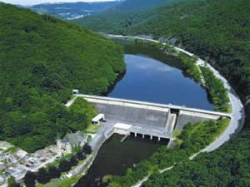 I have completed a sociology dissertation aiming to analyze environmental grassroots movements in Turkey within a frame of social ecology. Hundreds of local movements rose against the construction of thousands of HES[1] (hydroelectric power plants) in the last few years. HES opposition shows new and unique aspects challenging traditional ‘environmentalism’ in Turkey. Except for the Bergama movement (against a gold mining company, 1990-2005), this was the first time local people developed such numerous grassroots movements throughout the country. Local people, who had not joined any protests in their lives, became pioneers of protest, voicing new slogans like “we will resist for our right to live until the end.” Not only did they join the environmental movement but they also used concepts of ‘rights of nature’ and ‘living space’ for the first time. The unique difference between traditional urban environmentalism and these local grassroots activities pushed me to write this thesis after years of professional Environmental NGO (ENGO) experience in several areas of Turkey. I have completed a sociology dissertation aiming to analyze environmental grassroots movements in Turkey within a frame of social ecology. Hundreds of local movements rose against the construction of thousands of HES[1] (hydroelectric power plants) in the last few years. HES opposition shows new and unique aspects challenging traditional ‘environmentalism’ in Turkey. Except for the Bergama movement (against a gold mining company, 1990-2005), this was the first time local people developed such numerous grassroots movements throughout the country. Local people, who had not joined any protests in their lives, became pioneers of protest, voicing new slogans like “we will resist for our right to live until the end.” Not only did they join the environmental movement but they also used concepts of ‘rights of nature’ and ‘living space’ for the first time. The unique difference between traditional urban environmentalism and these local grassroots activities pushed me to write this thesis after years of professional Environmental NGO (ENGO) experience in several areas of Turkey.
Social ecology is necessary in order to analyze this movement, especially through environment/nature and environmentalism/ecology dualities. Only the critique of liberal environmentalism and the radical proposals of Libertarian Municipalism (LM) can uncover dominant urban environmentalism and analyze the significance of the rising environmental grassroots in Turkey. Beyond the scope of social movement literature, social ecological analysis provides insights for the environmental grassroots in terms of ideology, economics, politics, activities, and forms of organization that challenge domination.
Read more...

Introduction
Asia Geospatial Forum has matured as a conference and is now widely recognised as one of the largest and most important geospatial industry event in Asia Pacific. Being a media company born out of the sheer need for reliable information, resource material and latest developments in the realm of geospatial technology, Geospatial Media & Communications endeavours to create awareness about geospatial technology; connect various stakeholders of geospatial community; advocate in creating the right policy environment; and provide an ideal platform for business development activities. For these exact reasons, developing countries with emerging geospatial drive are chosen to host Asia Geospatial Forum, with main objective of fostering the industry’s growth within the country and region.
Vietnam has been putting itself on the path of economic growth and development post the War. The country is adopting modern technologies to be on par with other South East Asian countries and is capitalising on the second mover advantage to evolve its geospatial footprint. With its first remote sensing satellite on the way, and Spatial Data Infrastructure Program initiated, Vietnam is on the right track towards full utilisation of geospatial information. Although the major usage is still in the natural resource management such as land and forestry, geospatial elements has also tapped into the fast-rising sectors such as transportation, utilities, public safety and urban planning.
Read more...
Apr 30, 2012
In less than two months, world leaders will gather in Rio de Janeiro for the UN Conference on Sustainable Development. It is 20 years since the last Rio conference, and Rio 2012 is an opportunity to assess the progress made toward sustainable development since 1992 and begin building a Green Economy.
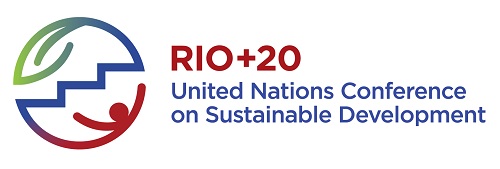 Speaking in Copenhagen at a conference organised by the ethical investment research group EIRIS, Jacqueline McGlade, Executive Director of the European Environment Agency, today addressed the subject of ‘Investing sustainably: Rio+20 and beyond’.
A lot has happened in the past 20 years. The telecommunications and internet revolutions, the financial crisis, and the rise of the developing world have radically altered the foundations of policymaking that existed in 1992. Is the idea of sustainable development still relevant in a world where western countries lack money to invest? Is it relevant in a world where billions of people seek to enjoy the comfort of middle class lifestyles, which so often involve unsustainable consumption?
The answer is yes. Sustainable development is more relevant now than ever.
Read more...
Solutions and Resources for Today's Forest Management Challenges
Join forestry professionals from around the world and explore how they use GIS to
- Calculate land values
- Evaluate resource assets
- Automate data storage and management
- Increase forest revenue and economic value
- Support and track regulatory activities
This conference is a unique opportunity to learn about projects from forestry users, talk to onsite GIS specialists, participate in discussions and workshops, and explore the advantages of GIS in a setting just for foresters.
Hosted by the
Esri Forestry Group
May 1–3, 2012
Esri Headquarters
Redlands, CA
http://www.esri.com/events/forestry/agenda/index.html

7th National GIS Symposium
29 April 2012 - 01 May 2012
Dammam - Saudi Arabia
Under the Patronage of His Royal Highness Amir Muhammad ibn Fahd ibn ‘Abd al-‘Aziz; Governor of the Eastern Province, The High Committee of Geographic Information Systems (GIS) in the Eastern Province will host “The Seventh National GIS Symposium in Saudi Arabia”. Featuring a state-of-the-art exhibit, plenary, keynote, and technical sessions, it would bring all stakeholders in the geospatial domain - academia, researchers, students, and the industry - onto one platform for interaction, sharing and discussion on various topics such as collaboration on technologies and experiences gained. The symposium is intended to encourage the exchange of knowledge and experience in geospatial sciences among researchers, practitioners, and professionals within the country and abroad.
http://www.saudigis.org/
As you read this, Geospatial World Forum 2012 will be well underway in Amsterdam. After three editions in India, this is the first time that the event has crossed Indian shores. Centred on the theme 'Geospatial Industry and World Economy', it will cover the dimensions of the industry in the fast changing world. Our two top stories are perhaps indicative of the importance of the topic. Geospatial technology is now crucial enough to spawn technical espionage. The second story also shows that regimes of denial are in the end counter-productive as far as the industry is concerned. In a way, these are the symptoms of an industry that is grappling with the real world which it has entered.
Prof Arup Dasgupta
This e-mail address is being protected from spambots. You need JavaScript enabled to view it
 Spring rains in the eastern Horn of Africa are projected to begin late this year and be substantially lower than normal. Spring rains in the eastern Horn of Africa are projected to begin late this year and be substantially lower than normal.
From March - May, the rains are expected to total only 60 to 85 percentage of the average rainfall in this region. This is a significant deterioration compared to earlier forecasts.
Lower rain amounts would have significant impacts on crop production, rangeland regeneration for livestock, and replenishment of water resources.
This would put greater stress on the region, particularly Somalia which is still recovering from a famine declared last year, as well as Kenya and Ethiopia which also experienced a severe food crisis. An increase in food insecurity and in the size of the food insecure population is likely.
The State Department released a statement on this forecast and their intent to provide additional funding to aid refuges and drought-affected communities.
Read more...
Consumption of products and services impacts the environment in many different ways. For example, the things we buy contribute, directly or indirectly through the product lifecycle, to climate change, pollution, biodiversity loss and resource depletion in Europe and other regions of the world.
 Another kind of consumption is possible, however. This is the subject of Sustainable consumption in a time of crisis, a meeting hosted on 15 March by the European Environment Agency (EEA); and organised by the European Economic and Social Committee (EESC) and the Danish Consumer Council. The event marks International Consumer Day. Another kind of consumption is possible, however. This is the subject of Sustainable consumption in a time of crisis, a meeting hosted on 15 March by the European Environment Agency (EEA); and organised by the European Economic and Social Committee (EESC) and the Danish Consumer Council. The event marks International Consumer Day.
“Continuing with current consumption patterns in Europe is not an option,” EEA Executive Director Jacqueline McGlade said. “As both population and purchasing power swell worldwide, resources will be ever more overused and constrained. Europe must take the lead in exploring a new model of consumption which does not compromise the needs of others or of future generations, nor damage the environment.”
The meeting will look at ways the economy can be adjusted to drive sustainable forms of consumption. It will consider how the recession in Europe creates opportunities and constraints for policy makers hoping to boost the ‘green economy’. The meeting is particularly timely, as green economy is one of the priority discussion points of the landmark sustainable development summit in Rio de Janeiro in June this year.
Read more...
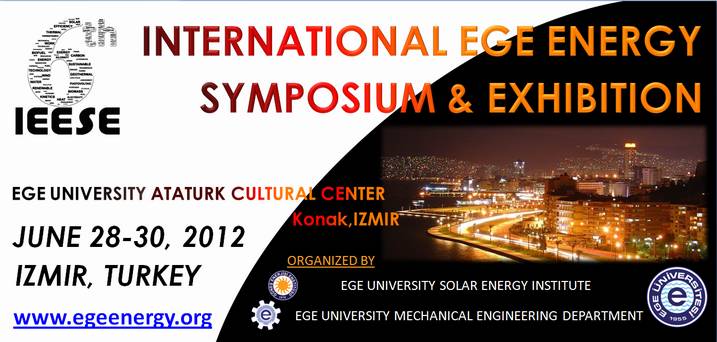
Welcome
The indiscriminate and uncontrolled use of fossil fuels from past to present, especially since the dawn of modern civilization, has raised an environmental pollution, emissions of CO2 and also finally caused to global warming. To prevent all these bad situations, the new alternative technologies, energy efficiency and management have become extremely important within effective developing policies. “International Ege Energy Symposium and Exhibition” (IEESE) will serve as a bridge for people around the world to share their work in this field.
The Ege Energy Symposium and Exhibition has been held every 2 year by the collaboration of fourteen regional universities since 2003. Until 2010, this symposium was national, but it has been transformed to an international scientific organization that provides an excellent opportunity for discussion and knowledge exchange for scientists, policy-makers, engineers and other specialists with an interest in issues related to energy.
The 6th IEESE, organized by the Ege University and hosted by the Solar Energy Institute and Mechanical Engineering Department, will be held on June 28 – 30, 2012 at Ege University in Izmir, Turkey. The symposium will be an international forum for the participants to address and discuss the state of the art innovation in energy and energy systems. The symposium will feature sessions, panels and tutorials by international experts on energy.
The Symposium Organizing Committee invites researchers and practitioners worldwide for participation. The symposium scope covers a wide area of topics with respect to energy as followed. Our Committees have the pleasure to invite and welcome you to participate in our exciting symposium.
Read more...
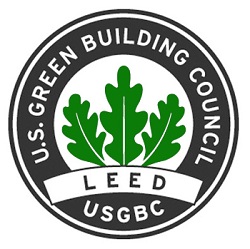 LEED, or Leadership in Energy and Environmental Design, is redefining the way we think about the places where we live, work and learn. As an internationally recognized mark of excellence, LEED provides building owners and operators with a framework for identifying and implementing practical and measurable green building design, construction, operations and maintenance solutions. LEED, or Leadership in Energy and Environmental Design, is redefining the way we think about the places where we live, work and learn. As an internationally recognized mark of excellence, LEED provides building owners and operators with a framework for identifying and implementing practical and measurable green building design, construction, operations and maintenance solutions.
With nearly 9 billion square feet of building space participating in the suite of rating systems and 1.6 million feet certifying per day around the world, LEED is transforming the way built environments are designed, constructed, and operated --- from individual buildings and homes, to entire neighborhoods and communities. Comprehensive and flexible, LEED works throughout a building's life cycle.
LEED certification provides independent, third-party verification that a building, home or community was designed and built using strategies aimed at achieving high performance in key areas of human and environmental health: sustainable site development, water savings, energy efficiency, materials selection and indoor environmental quality.
Developed by the U.S. Green Building Council (USGBC) in 2000, the LEED rating systems are developed through an open, consensus-based process led by LEED committees. The next update of the LEED rating system, coined LEED 2012, is the next step in the continuous improvement process and on-going development cycle of LEED.
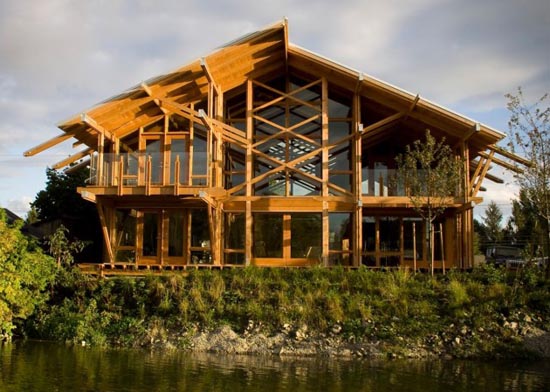
Read more...
|
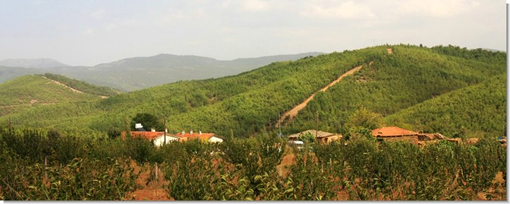
The Permaculture Research Institute Turkey is planning to host three prominent events in summer 2012. First a Permaculture Design Certificate (PDC) course will be organized in Istanbul on 30 June — 12 July, 2012; held by two legendary trainers, Bill Mollison and Geoff Lawton. Following the PDC, a Regional Permaculture Conference will take place in Istanbul on the 14th of July. Last but not least the PIT would like to welcome you at its field practice venue; Marmariç village in Izmir, for the Regional Permaculture Convergence – the Mediterranean, Balkans Caucasus and Middle East.
This open call aims to inform you about these events and to form an international prep team for the preparations.
Below, further explanations are provided about the events. We wanted to reach out to a group of existing contacts of the institute, in order to ask for your support. We look for volunteers who would like to join our International Prep Team (IPT).
What is expected from the IPT?
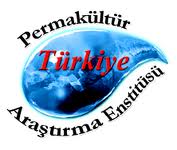 As a young member of the permaculture family, we would like to create a group of interested permaculture practitioners from countries in the region to shape the program of the Regional Permaculture Conference and the Regional Convergence together. We hope to have at least one multiplier from each country in our region, who: As a young member of the permaculture family, we would like to create a group of interested permaculture practitioners from countries in the region to shape the program of the Regional Permaculture Conference and the Regional Convergence together. We hope to have at least one multiplier from each country in our region, who:
- is in touch with the local network of permaculture practitioners and
- can provide us with feedback on local realities, practices and contacts,
- propose topics/speakers for sessions,
- help us in disseminating information about the events to ensure high
levels of participation from different localities in the region for a fruitful gathering.
Read more...
Eco2 cities: ecological cities as economic cities
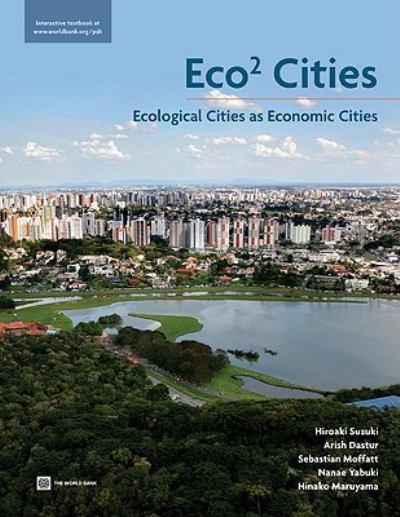
An overview of the ‘Eco2 Cities: Ecological Cities as Economic Cities’ Program, helping cities in developing countries achieve greater ecological and economic sustainability, also addresses proactive risk management.
Divided into three parts, part one is describes the approach, background and rationale, key challenges, and lessons drawn from cities which have managed to turn these challenges into opportunities. Part two outlines a City-based Decision Support System that introduces a set of core methods and tools to help cities as they develop their own Eco2 pathway towards applying the steps outlined in part one. Part three is a ‘Field Reference Guide’ containing background literature designed to support cities in developing more of an in-depth insight and fluency with the issues at two levels.
The Eco2 Cities Program is an integral part of the World Bank’s new Urban Strategy which is currently being developed in consultation with stakeholders. The Eco2 Cities Program is also complementary to the ongoing efforts the World Bank and its development partners are making in sustainable development and climate change.
|
|












 Another kind of consumption is possible, however. This is the subject of
Another kind of consumption is possible, however. This is the subject of 







